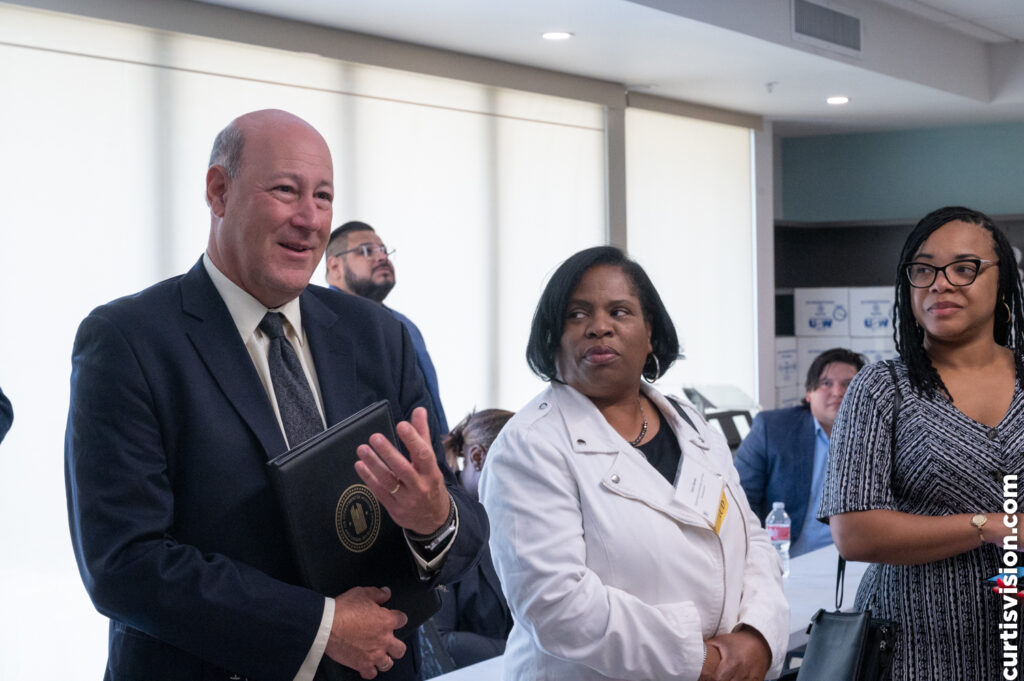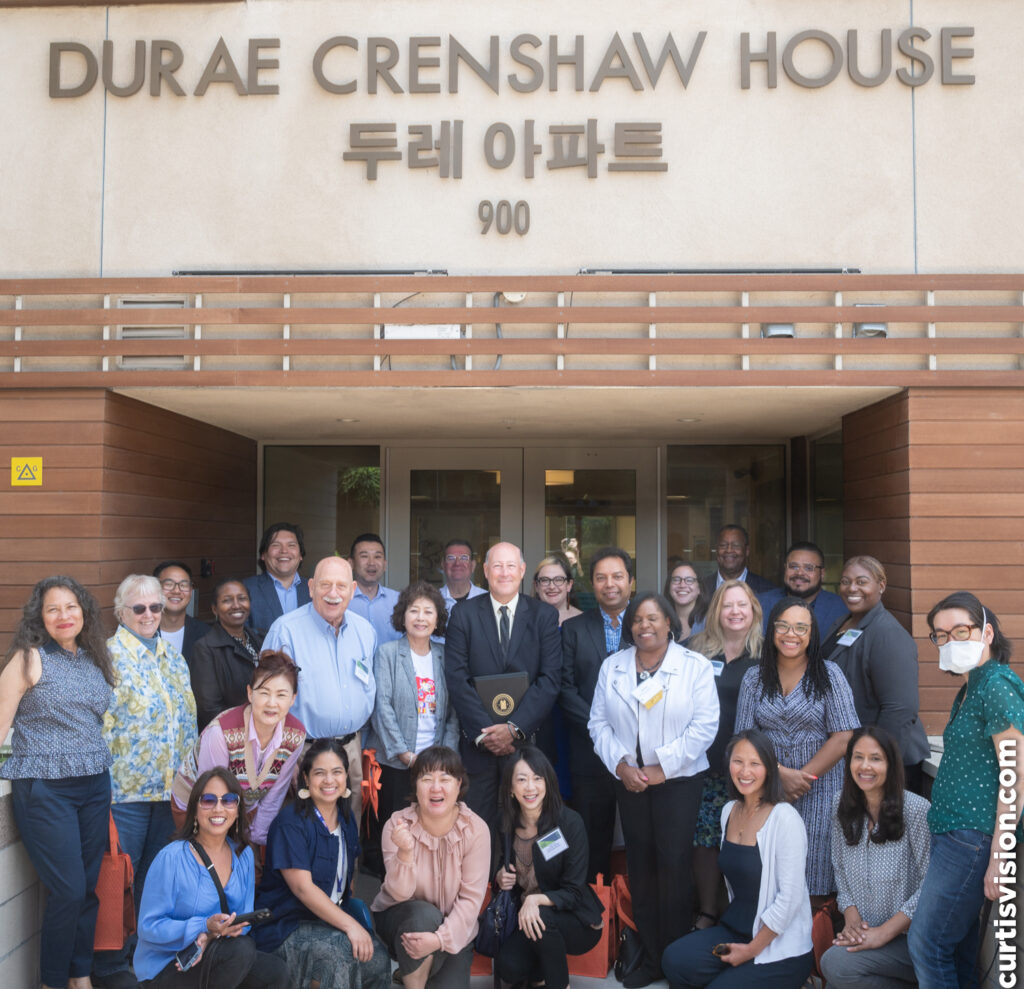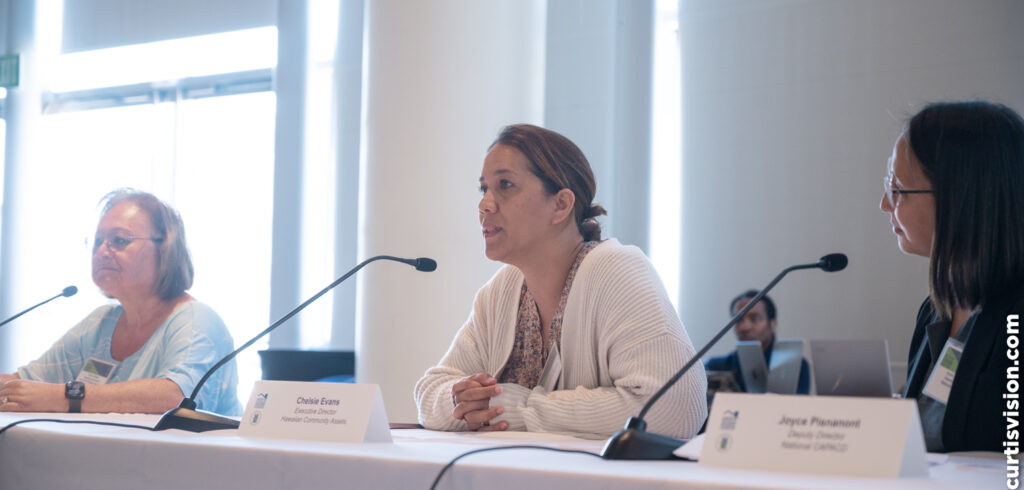National CAPACD was proud to recently join the U.S. Department of Housing and Urban Development for their HUD Housing Counseling Federal Advisory Committee (HCFAC) meeting in Los Angeles. The meeting brought together local members of National CAPACD’s coalition, HUD Deputy Assistant Secretary David Berenbaum, and other representatives from the HCFAC and the HUD Office of Housing Counseling. This engagement demonstrates HUD’s commitment to learning about and implementing strategies to provide culturally sensitive housing counseling services to Asian American, Native Hawaiian, and Pacific Islander (AA and NHPI) communities.

Photo of Deputy Assistant Secretary David Berenbaum and HUD staff
On the first day of the meeting, National CAPACD arranged a tour covering six different Asian neighborhoods in LA, including Koreatown, Little Tokyo, Chinatown, Little Bangladesh, Thai Town, and Historic Filipinotown (HiFi). The tour allowed HUD representatives to engage with local AA leaders, including staff from Korean Resource Center and Little Tokyo Service Center (LTSC). On a tour through Little Tokyo, facilitated by LTSC Executive Director and National CAPACD Board Member Erich Nakano, HUD staff learned about the organization’s comprehensive model for building a sustainable and vibrant community in the face of the rapid rate of displacement.

Group photo in front of Durae Crenshaw House, affordable housing for low-income seniors managed and owned by KRC
On the second day of the meeting, we held three panel discussions comprised of National CAPACD coalition members and partners. Panelists included representatives from:
- Hawaiian Community Assets (HCA) and Council for Native Hawaiian Advancement (CNHA), who discussed the intensive nature of housing counseling services to address the unique housing conditions experienced by Native Hawaiians in Hawai’i;
- United Cambodian Community (UCC), Fresno Interdenominational Refugee Ministries (FIRM), Korean Resource Center (KRC), and CalHFA, who shared efforts to grow their housing counseling capacity and the barriers they have faced in doing so;
- Southeast Asian Community Alliance (SEACA), Thai CDC, and AAREA, who addressed some of the broader issues impacting our communities, including homelessness.

Photo of Leona Hosea (CNHA), Chelsie Evans (HCA), and Joyce Pisnanont (National CAPACD)
These panels underscored prevailing organizational challenges to meet community needs without adequate resources, such as difficulty in hiring, training, and retaining staff with the linguistic and cultural expertise, as well as the technical knowledge, to serve clients effectively. Many populations are left out of existing resources and programs, and it takes considerably more time for housing counselors to address AA and NHPI community members’ unique needs and conditions. Thus, more flexible funding is needed to help housing counseling agencies grow their capacity to respond to these needs.
The HUD HCFAC meeting in LA was a valuable space for HUD to learn more about how they can support housing counseling agencies to serve low-income AA and NHPI communities effectively. It was also an opportunity for our coalition members to learn about HUD efforts that are already underway, such as the translation of materials or the adjustment of the HUD housing counseling certification exam – many of these in direct response to the strong advocacy of National CAPACD’s Housing Counseling Network. We look forward to continued engagement and deep partnership with HUD to address some of the issues raised during this recent meeting, especially in light of President Biden’s recent announcement of efforts to promote equitable community development.
